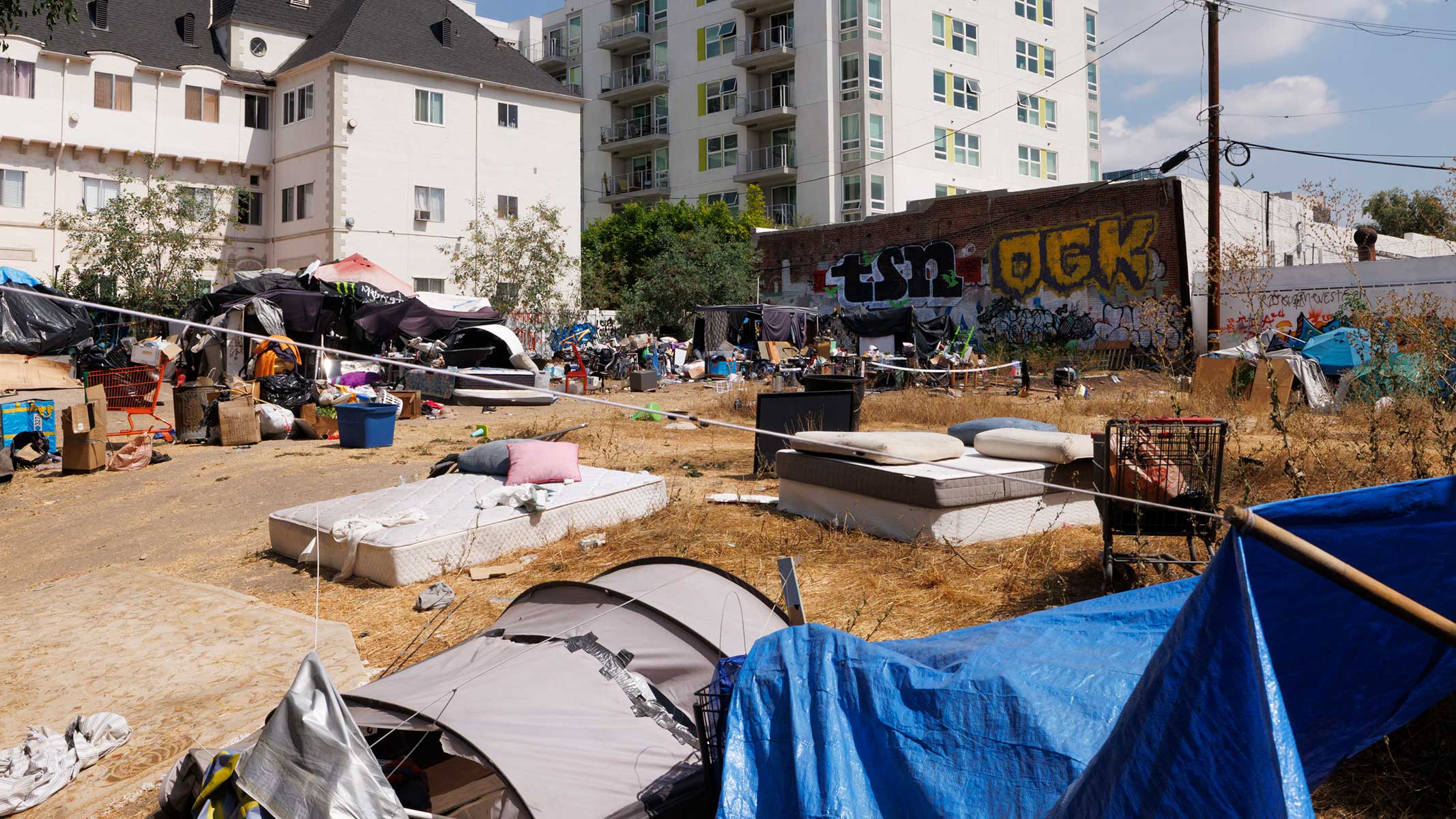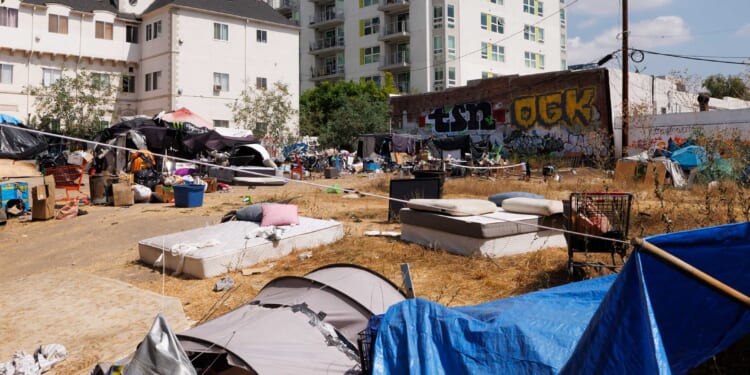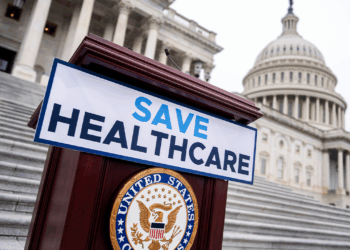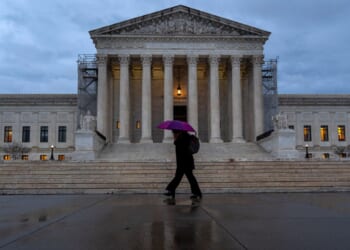
Earlier this summer, President Trump announced an executive order making sweeping changes to America’s response to homelessness. The new policy prioritized funding for states that enforce laws against drug use and camping, expanded use of involuntary treatment for addiction and mental illness, and shifted the federal government away from the misguided and ineffective Housing First model.
The order sent shockwaves throughout the national network of homeless services providers and nongovernmental organizations. At stake are billions of dollars of federal discretionary grants from the Departments of Justice, Health and Human Services, and Housing and Urban Development. Organizations like the National Alliance to End Homelessness, the National Low Income Housing Coalition, and the more than 400 Continuum of Care (CoC) entities across the country face a choice: adapt or fight.
These annual grants are the lifeblood of state, county, and local government programs—typically implemented by NGOs—to address many local concerns, including homelessness. For example, HUD’s Continuum of Care program provides more than $3.5 billion annually to assist communities in addressing homelessness. The Justice Department’s Office of Justice Program awards public safety and justice initiative grants that totaled $3.3 billion in FY 2023.
Attacks on the president’s redirection of these funds emerged quickly. Ann Oliva, CEO of the National Alliance to End Homelessness (NAEH) and former senior official at HUD, called Trump’s order a “broadside threat to the nation’s homelessness response system, people experiencing homelessness, and the providers that serve them.”
Oliva’s organization is taking its criticism to Congress and the courts. In addition to calling on Congress to roll back Trump’s homelessness agenda, the NAEH filed a lawsuit soon after HUD posted a Notice of Funding Opportunity for the CoC Builds program. HUD’s notice requires certification statements reflecting the administration’s views on immigration enforcement, sex offenders, drug enforcement, and gender.
A federal judge in Rhode Island has issued a temporary restraining order. In other lawsuits challenging Trump’s executive orders, the Supreme Court has affirmed the president’s authority to set federal policy, but it is unclear if the Court will do so in this case.
Some homeless advocates are trying to adapt to the president’s order. In a recent podcast, Mark Horvath, founder of Invisible People, dismissed the responses from leading homelessness advocacy organizations as “platitudes.” He conceded that many of the Housing First movement’s positions on program integrity, harm reduction, and involuntary treatment were too uncompromising, and that the way forward for the movement would be one that seeks compromise and pays attention to public opinion.
Lisa Daugaard, co-executive director of Purpose Dignity Action, a Seattle-based diversion program, called on Housing First service providers to see the executive order as an “opportunity.” She warned, “A knee-jerk rejection of Trump’s order will only make progressives look defensive and beholden to the status quo.”
For the many communities that have been harmed by decades of HUD prioritizing Housing First, this policy change presents an opening. State and local governments and nonprofit housing and service providers are now free to experiment with new ways of addressing homelessness, addiction, and untreated mental illness. They can strike a balance between approaches that include creating places for people to go, treating those who must be compelled to accept treatment, and enforcing camping bans, drug-free homeless zones, and diversion programs to reduce the number of people living on the streets.
States and cities can’t tackle homelessness alone. They must rely on providers determined to solve the problem—not merely satisfy their political agendas.
Photo by Carlin Stiehl / Los Angeles Times via Getty Images
City Journal is a publication of the Manhattan Institute for Policy Research (MI), a leading free-market think tank. Are you interested in supporting the magazine? As a 501(c)(3) nonprofit, donations in support of MI and City Journal are fully tax-deductible as provided by law (EIN #13-2912529).

















